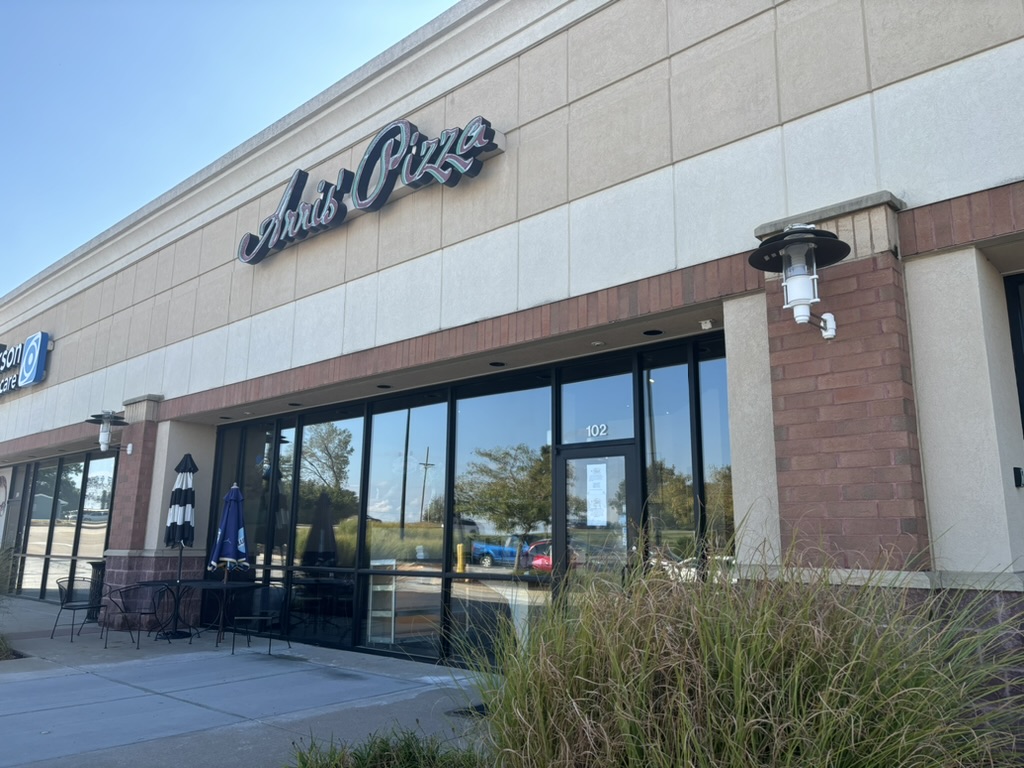The nonprofit organization, Canine Companions, came to campus to inform students about how they can become volunteer service dog trainers.
The Mizzou Disability Coalition collaborated with Canine Companions this Feb. 20 to host an informational event about the importance of training service dogs.
Joyce and Gordon Spainhower, longtime volunteer puppy trainers with Canine Companions, spearheaded a presentation in the Student Center detailing what it means to be a puppy trainer and how it can make an impact.
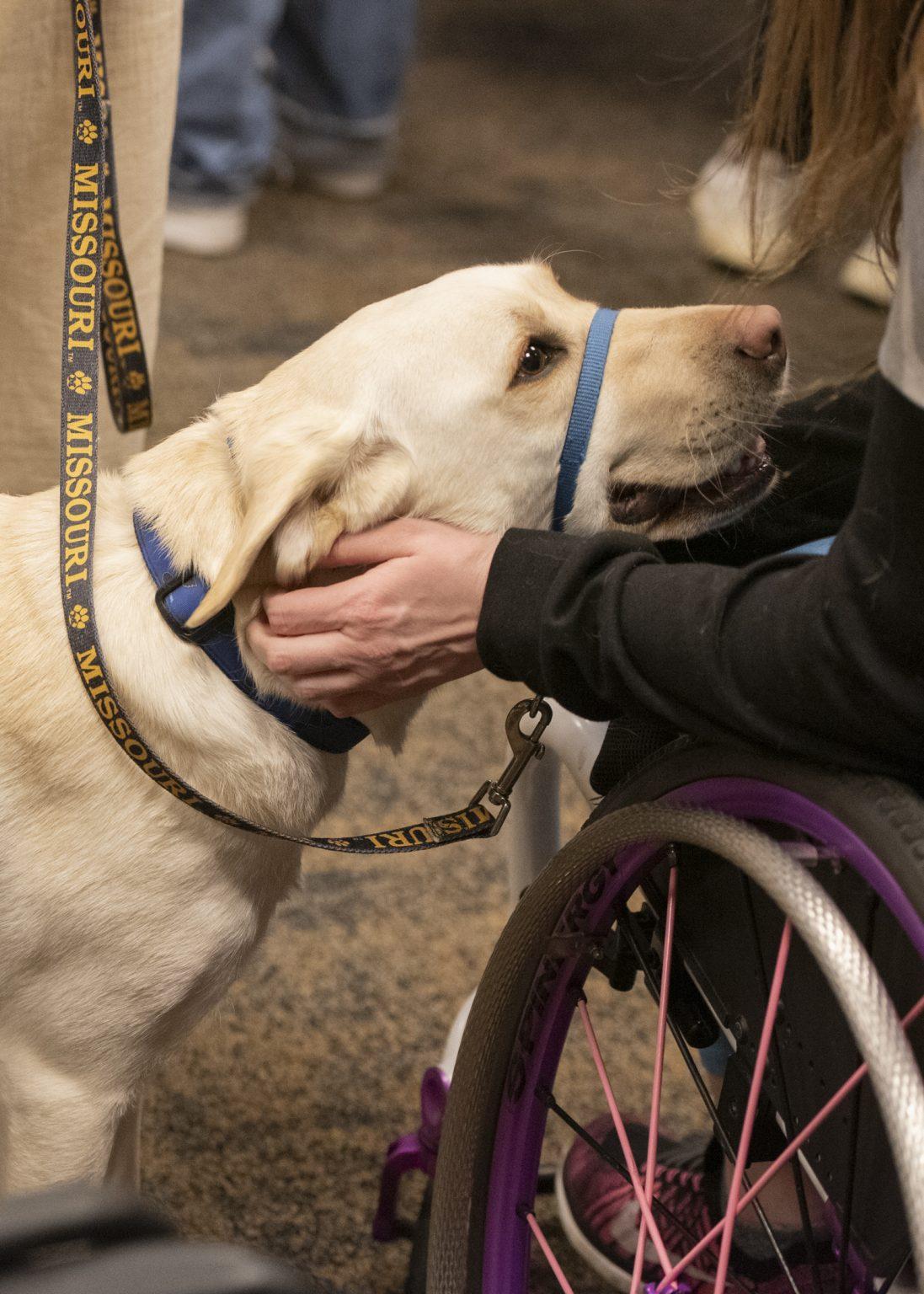
Joyce and Gordon Spainhower were joined by other volunteers, service dogs in training and working dogs. Volunteers gave demonstrations and testimonials describing opportunities for students to get involved with Canine Companions. The nonprofit organization is dedicated to matching service animals to individuals of all ages with varying disabilities. The process of preparing these dogs for task-oriented service is long and time consuming, but Canine Companions is encouraging college students around the country to take on the challenge.
The organization is the largest and oldest service dog organization in the United States. It breeds over 900 puppies each year, has over 1,000 puppy raisers and more than 2,000 active clients throughout the country.
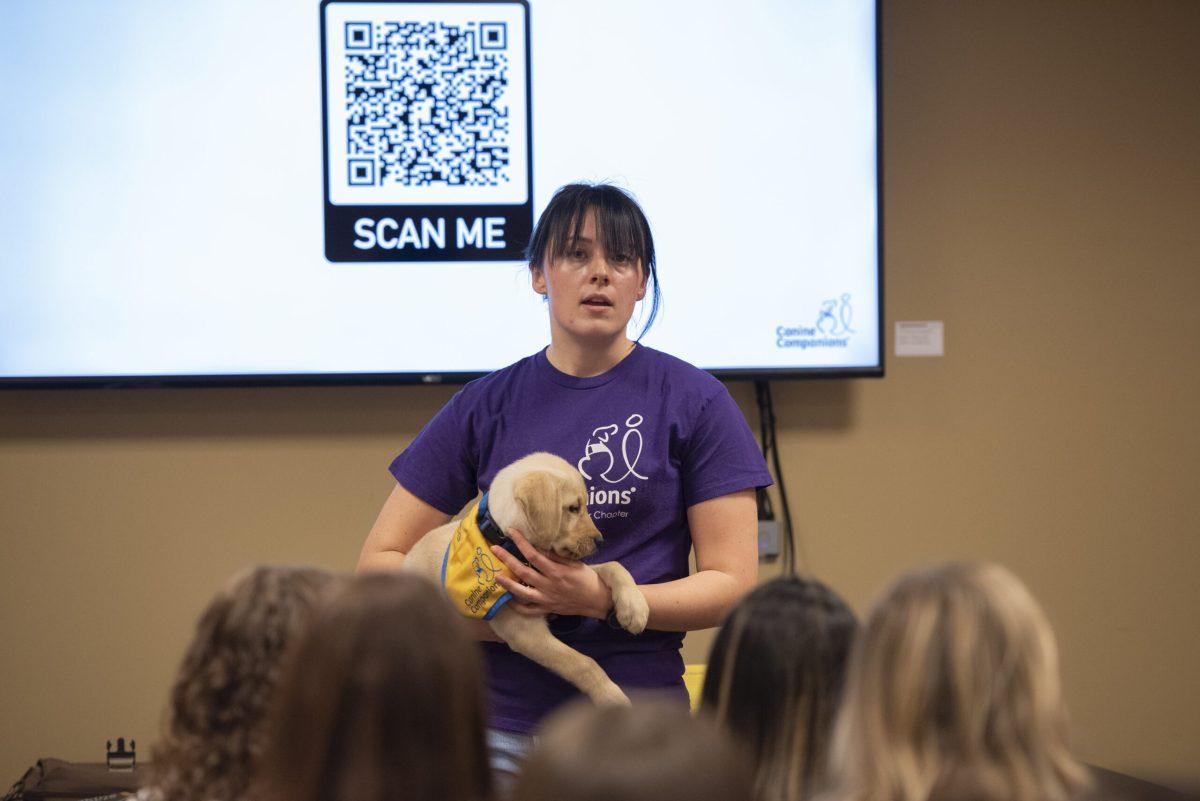
After the dogs are bred, they are placed with a volunteer trainer — ranging from college students to retirees — for a year and a half to learn basic tasks and be socialized. The puppies then return to Canine Companions where they are professionally trained at a regional training center for five to nine months. Then, those in need of service dogs come to stay onsite for two weeks to work with multiple dogs and learn customized commands before being matched.
Joyce and Gordon Spainhower have graduated over a dozen dogs through this program. Emma McClellan, another volunteer who shared her experiences, is on dog number five.
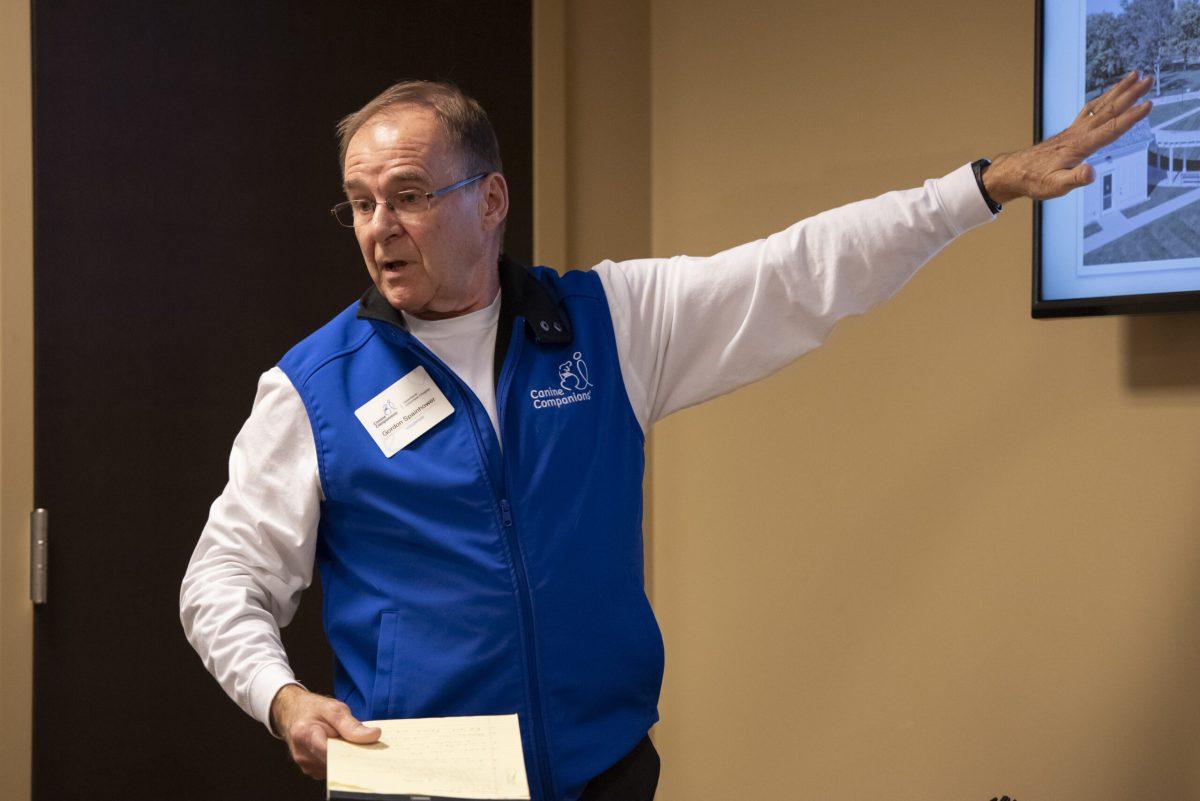
McClellan graduated from MU six years ago and trained her first puppy with Canine Companions in the summer between her sophomore and junior year.
“I started taking her to class,” McClellan said. “I was in the business school, so I never really had any issues with it. College campuses are by far the best place to socialize a dog because they get exposed to absolutely everything.”
Gordon Spainhower explained that the organization has a puppy raising program that includes over 25 colleges nationwide. He encouraged students at the presentation to consider establishing an MU club for those who are interested in raising a service dog. Canine Companions already has a charter, handbook, insurance policy and program manager set up to help universities get started.
“You mean you trust college kids with raising a puppy?” Gordon Spainhower said. “Yes indeed, some of the best puppy raisers in the world.”
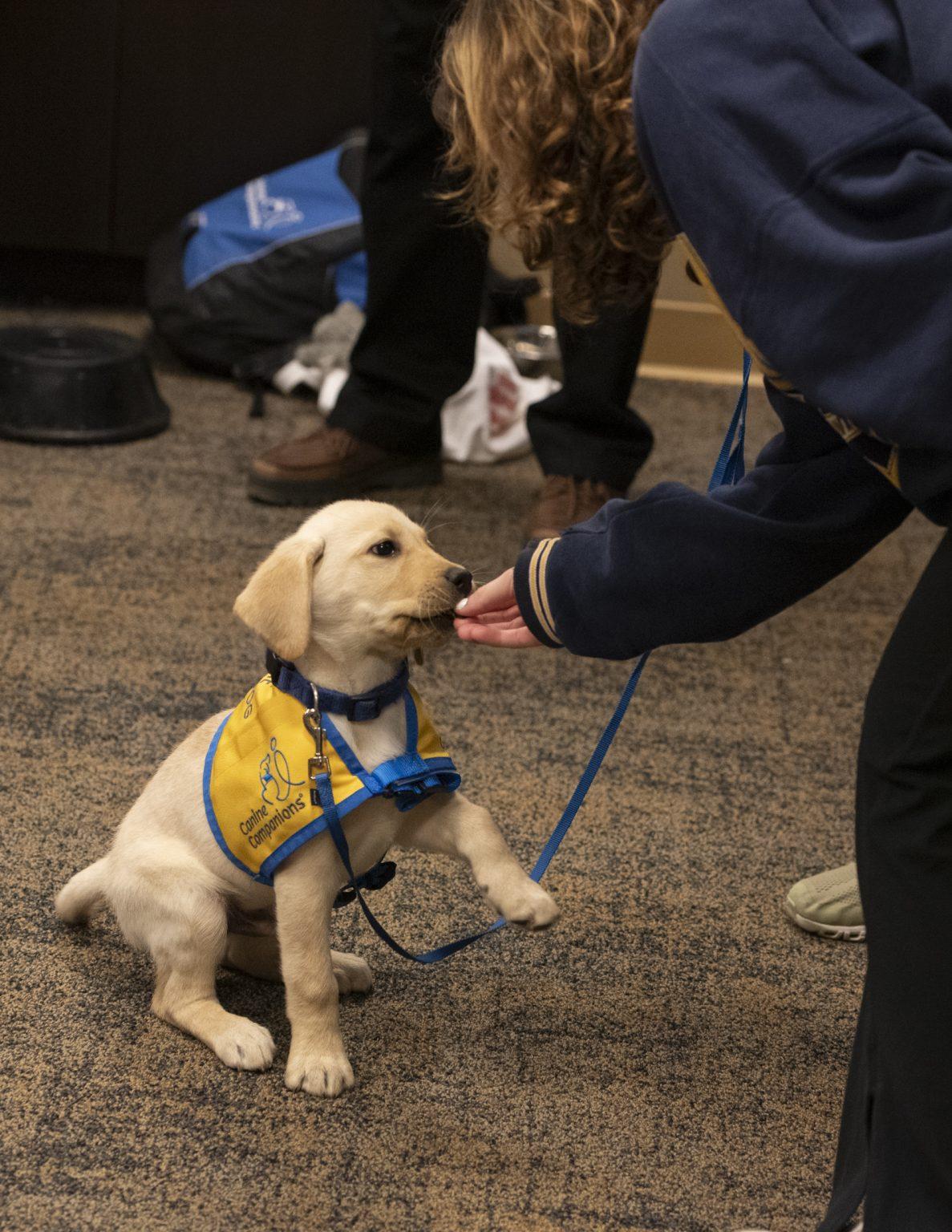
Gordon Spainhower advised students to consider the impact they could make by training a service dog. He said that volunteers who invest their time and talent into these puppies directly impact the well-being of thousands.
“I know what you’re going to say, ‘I can’t give the dog up,’” Gordon Spainhower said. “Right? Yeah, in a year and a half you get attached to it. But you know what, you can, because you know what it’s going to go do.”
During the presentation Michelle Blake, both a volunteer and service dog owner, shared her story. Blake has rheumatoid arthritis and uses a wheelchair for most of her daily life. She applied for a service dog through Canine Companions and in less than 18 months she was paired with Bramble, who was also present for the presentation. Blake expressed her gratitude for both Bramble and the puppy trainers.
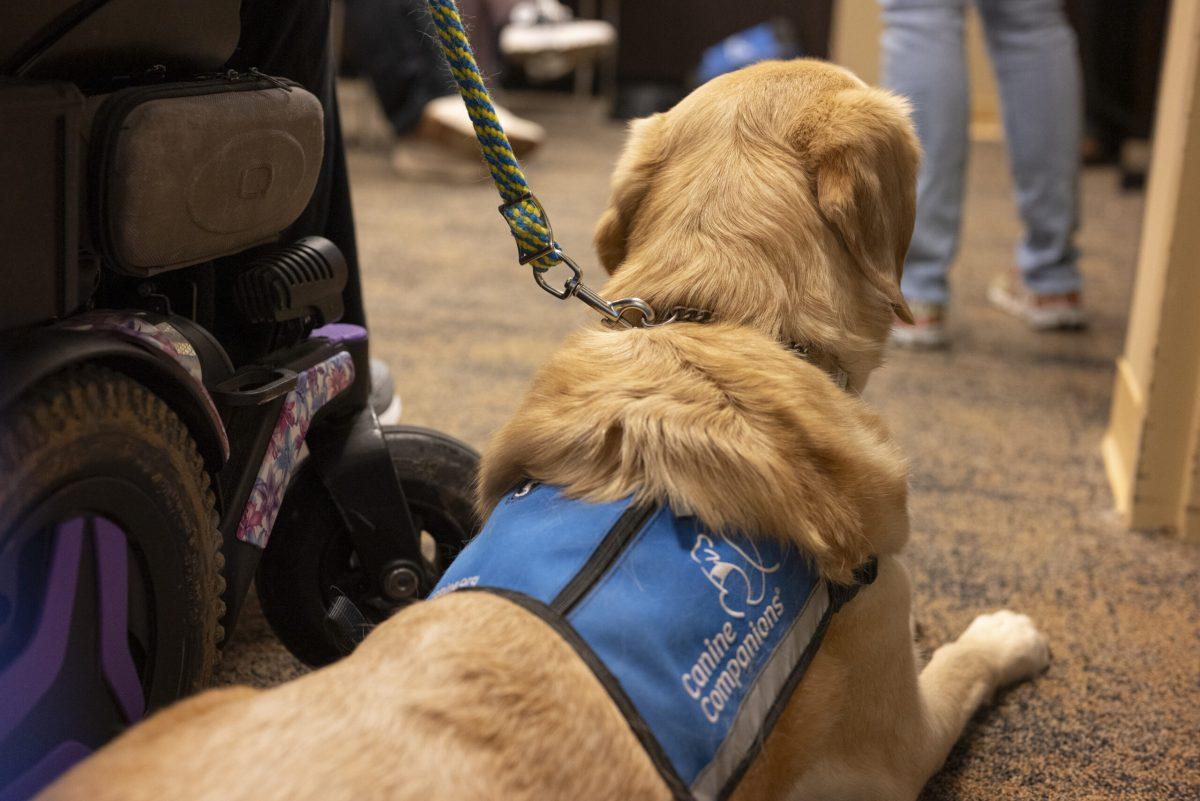
“She grabs everything,” Blake said. “I have a tie on my freezer door; she pulls the freezer open. She can open the fridge, she helps me take my shoes off …What [volunteer puppy raisers] do, and the money they put out to raise these puppies enriches my life, my family’s life and everybody around me because I’m no longer depressed. I’m getting myself up, I’m getting out, I’m rejoining society and making a difference.”
Those in attendance got the chance to meet puppies in training like Steele, Aurora and Ian, and see the result of training in working dogs like Whistler and Bramble. Students like Kathryn “KK” Urschler signed up to start the process after the presentation. After learning about Canine Companions, Urschler said she thought puppy training would be perfect for her and couldn’t believe she never thought about it before. Urschler said she is excited to give back and just as excited to do it with a puppy.
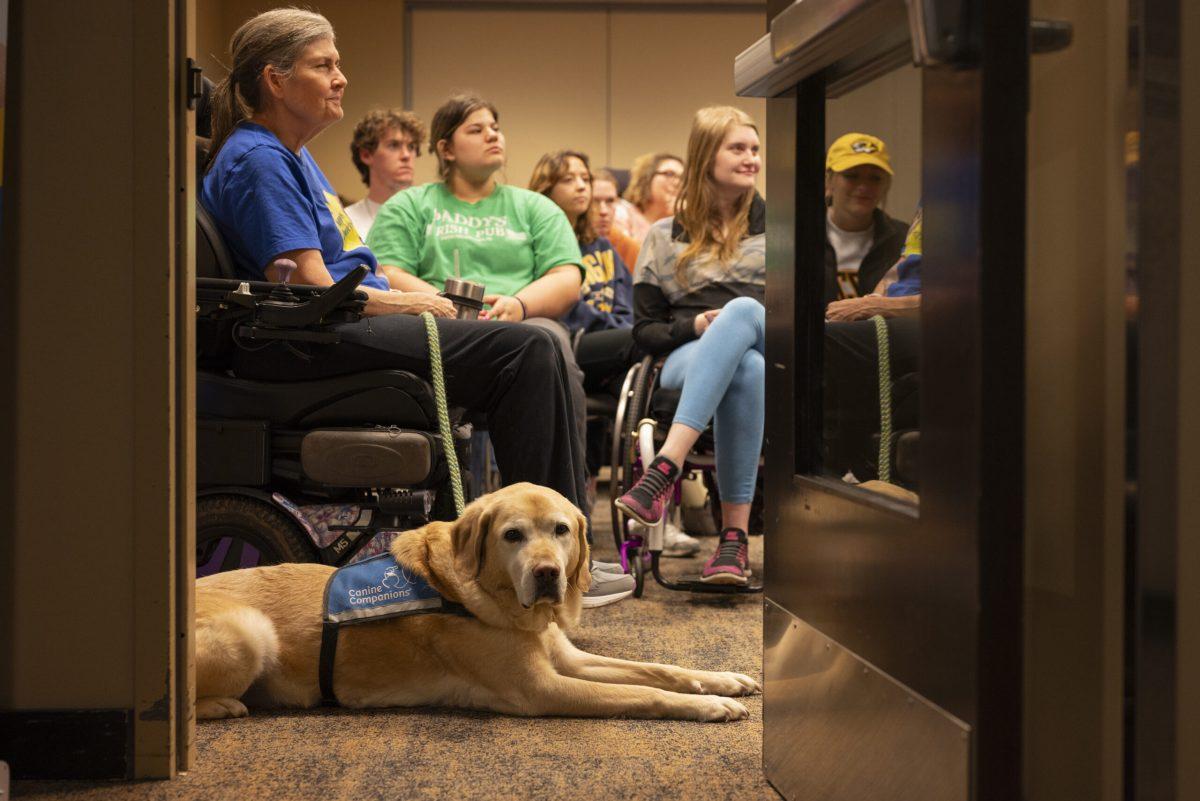
To submit a puppy raising application, find out more information or ask questions, visit canine.org, call 1-800-572-BARK or follow Canine Companions’ social media accounts @canineorg.
Edited by Sophia Anderson | [email protected]
Copy Edited by Jackson Cooper and Briana Iordan | [email protected]
Edited by Scout Hudson | [email protected]



